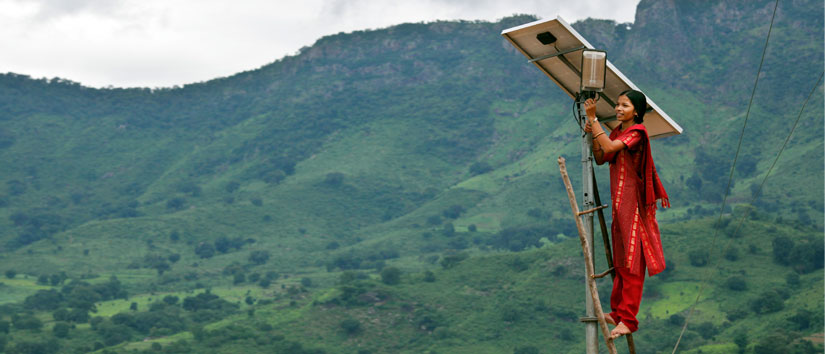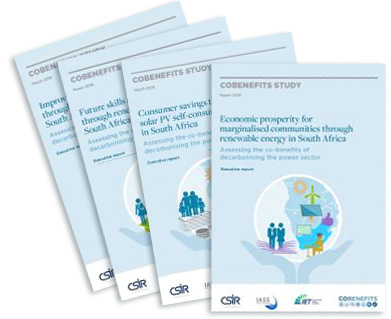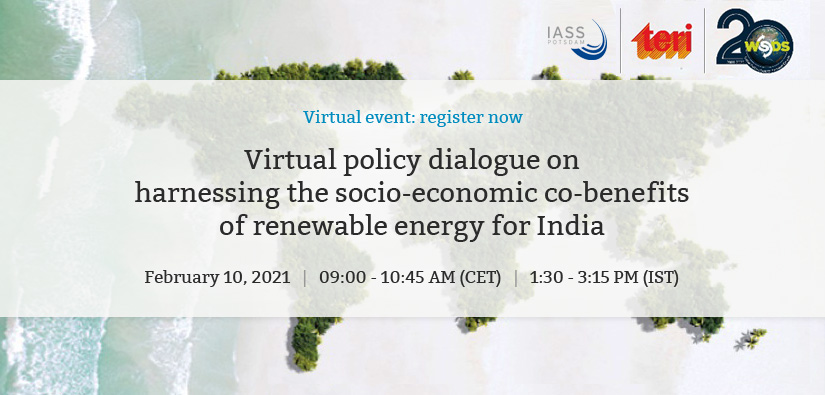
COBENEFITS India Report
The Policy Report compiles key findings from our assessments and formulates policy actions to harness the social and economic co-benefits of renewables.
COBENEFITS Studies in India
- Improving health and reducing costs through renewable energy in India
- Secure and reliable electricity access with renewable energy mini-grids in rural India
- Future skills and job creation with renewable energy in India
Main study results
The studies show how the implementation of renewable energy resources can impact job creation, electricity access and health positively .
Health
India can markedly improve the livelihoods of its citizens by reducing ambient air pollution. By implementing strategies for deeper decarbonisation (NDC PLUS), more than 200,000 premature deaths can be avoided in 2050. India can significantly cut economic losses by greening the economy and deploying renewable energy sources. By following the NDC PLUS pathway, economic losses in 2050 could be reduced by as much as INR 12 trillion (USD 168.6 billion).
Electricity access
Solar mini-grid systems can bridge the electrification gap in unconnected villages and drive economic development around rural clusters. The implementation of solar mini grids would improve rural education in India, as most schools in remote areas experience continuous power cuts which impede the quality of education that the students receive. Solar-powered mini-grids of high installed power capacity can remain economically viable and cost-competitive with the centralised grid in rural areas of India.
Job creation
India can significantly boost employment through the power sector by increasing the share of renewables. The renewable energy sector will be the largest employee in the future Indian power sector. More than 3.2 million people can be employed in renewables by 2050. The renewable energy sector could employ five times more people by 2050 than the entire Indian fossil-fuel sector employs today.
COBENEFITS Council Members in India
- Ministry of Environment, Forest and Climate Change
- Ministry of New and Renewable Energy
- Ministry of Power
- Ministry of Finance
- Ministry of Health and Welfare
- Ministry of Labour and Employment
- NITI Aayog
COBENEFITS Focal Point in India
The Energy and Resources Institute (TERI) is a New Delhi-based think tank dedicated to conducting research for the sustainable development of India and the Global South. TERI was established in 1974 as an information centre on energy issues. However, over the following decades, it made its mark as a research institute whose policy and technology solutions transformed people’s lives and the environment. TERI’s key focus lies in promoting clean energy, water management, pollution management, sustainable agriculture, and climate resilience.
How we benefit from renewables: Video statements from India
Chandrapal Yadav (41) lives in a village in the area of Kanpur, India. He explains how his community benefits from solar power.
Chhaya Tiwari (36), community leader in Fatehpur, India, explains why she wants to convince more people in her district to use biogas and solar power.
Making renewables a sucess for the people in India and recovering from the impacts of COVID-19: The video presents key findings from assessments on co-benefits of renewables for health, employment, and energy security in India.





